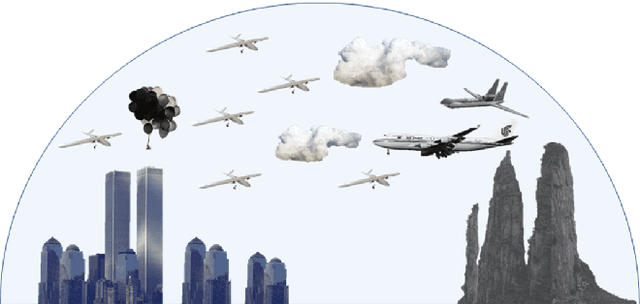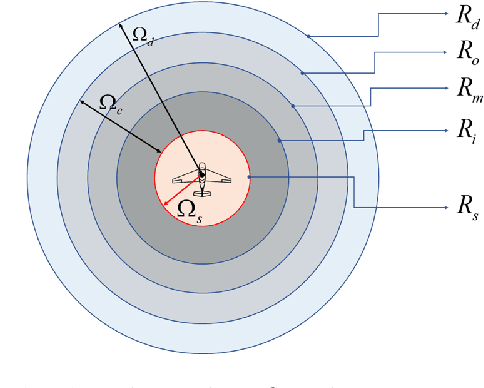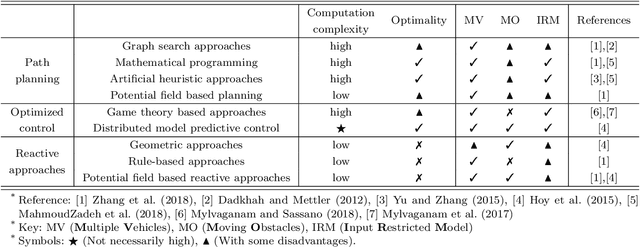A Hierarchical Collision Avoidance Architecture for Multiple Fixed-Wing UAVs in an Integrated Airspace
Paper and Code
May 29, 2020



This paper studies the collision avoidance problem for autonomous multiple fixedwing UAVs in the complex integrated airspace. By studying and combining the online path planning method, the distributed model predictive control algorithm, and the geometric reactive control approach, a three-layered collision avoidance system integrating conflict detection and resolution procedures is developed for multiple fixed-wing UAVs modeled by unicycle kinematics subject to input constraints. The effectiveness of the proposed methodology is evaluated and validated via test results of comparative simulations under both deterministic and probabilistic sensing conditions.
* 6 pages, 3 figures, 21st IFAC World Congress 2020
 Add to Chrome
Add to Chrome Add to Firefox
Add to Firefox Add to Edge
Add to Edge